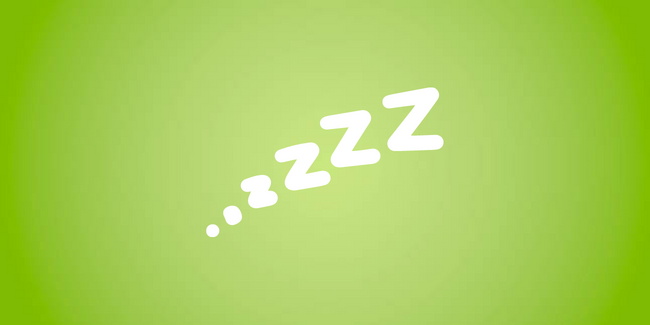
Sleep Q&A with neuroscientist and VDS Training consultant Dr Iain Price
Working in the veterinary profession can be incredibly rewarding but it can of course also be incredibly stressful. Trying to balance working to a high standard, managing everyone's expectations (including your own) and getting everything done can feel exhausting. A recent survey conducted by the Medical Defence Union (MDU) of over 500 doctors revealed a perfect storm for clinicians in the wake of Covid, with over a third saying they feel sleep deprived on a weekly basis, and over 1 in 4 to the point of impairment1. As unusual as the events of the last few years have been, sleep deprivation has become a pandemic of its own; one that has been silently creeping up on our society for decades. Exhaustion can lead to mistakes, lack of reward and enjoyment of our role of being a vet as well as life in general. One of the fundamental ways that we replenish our physical, emotional and cognitive energy is through the process of sleep. Dr Iain Price is a neuroscientist and a Training Consultant for VDS Training with a love of science and communication. He combines his own personal experiences with his professional expertise and knowledge to help you help yourself when it comes to improving the quality of your sleep. We asked Iain some of the profession’s most common questions around sleep and provide some tips on how to recognise and explore your sleeping habits. Here’s what he had to say: Sleep hygiene is a bit like any other daily hygiene in that it’s all about your habits and routines. Things like making sure your bedroom isn’t cluttered with work, going to bed at roughly the same time every day and fuelling and moving your body during the day, all contribute to a good quality night’s sleep. Yes it’s normal! A good proportion of the population (around 30% of 18-64 year olds2) find it difficult to be productive in the morning – these are the so-called ‘night owls’. If this is you, you might also find that you have more focus and attention towards the end of the day. Conversely, if you consider yourself a ‘morning lark’, which about 40% of the population do2, you could find yourself much more productive for focused work earlier in the day. Many of use fall somewhere in between the two. Try to think about what sort of things you could do to take advantage of your usually focused as well as your less focused, but probably more creative, times in the day. Sleep trackers or apps purport to record useful information such as the number of hours you are sleeping and, over time, if you’re getting roughly the same amount in each stage of sleep. However, they’re not always accurate and they are not clinical. Also, the danger is that we end up putting so much pressure on ourselves to get ever better nights of sleep, which can ultimately be counterproductive, rather than leaning in to knowing and understanding how your body works and what’s best for you. One of the techniques you can try is to take yourself on a ‘mind walk’. By this I mean literally envisage yourself on a walk somewhere you love and where you feel calm and peaceful. In your mind’s eye immerse yourself in how it looks, sounds, smells and feels to be there. The more detail you can add to this inner mind experience the more effective, and enjoyable, it can be for you. This is far more common than you might think! Give yourself as much time as you possibly can – go to bed much earlier than you need to and ensure you give your body and mind time to decompress. Don’t expect your body to simply stop and sleep. Realise it might take some time and take the pressure off as much as you can. Prioritise giving yourself this space. If you feel scared, terrified or you have been struggling with the impact of sleep deprivation over a prolonged period of time, talk to your GP who can explore your options with you. Above all don’t suffer in silence and get the help that you need and deserve. To get an idea of just how well you are currently sleeping, SATED is a simple questionnaire developed by sleep researchers to determine the degree of your sleep fulfilment. The SATED sleep questionnaire asks you to score various aspects of your sleep to give you a measure of your sleep fulfilment. It highlights key areas for improvement and forms a baseline to measure from as you make changes and improvements. This questionnaire was developed and proposed by Daniel Buysse (2014)3 and is widely used and recognised by the National Institute of Health (NIH) as a means of self-assessing sleep fulfilment and has been used in over 150 peer reviewed papers and studies. You can find your sleep score and reflect on your sleep fulfilment using our free SATED sleep questionnaire worksheet at www.vds-training.co.uk/SATED-sleep-questionnaire 2https://yougov.co.uk/topics/lifestyle/articles-reports/2011/08/02/night-owls-and-early-birds Q: What is ‘Sleep Hygiene’?
A:
Q: I’ve never been a morning person… is this normal?
A:
Q: I track my sleep on my smart watch, but what does/can it really tell me?
A:
Q: I wake up in the middle of the night and can’t get back to sleep, what should I do?
A:
Q: I don’t want to go to bed because I’m worried about my poor sleep, where do I start?
A:
How does your sleep score?
About VDS Training
VDS Training are passionate about developing all members of the veterinary team, to help you overcome the personal and professional challenges you face on a daily basis, and to build practical skills and techniques to make a real difference to you and your life.

